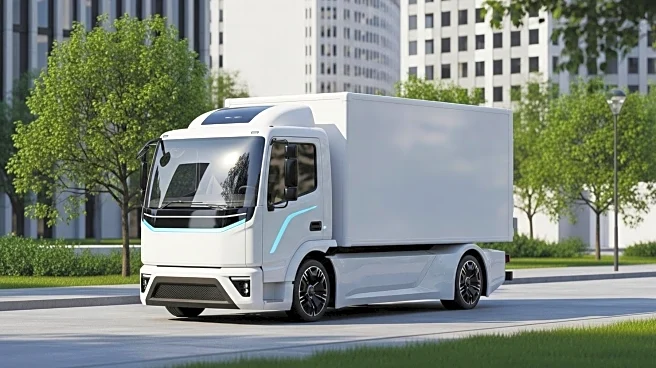What's Happening?
ASKO, Norway's largest grocery wholesaler, has successfully transitioned its delivery fleet in Oslo to 100% battery-electric vehicles, achieving its goal of eliminating transport emissions a year and a half ahead of schedule. The company, a division of NorgesGruppen, operates over 700 trucks daily and has partnered with Scania to enhance its fleet with next-generation electric trucks. These trucks feature improved range and faster charging capabilities, allowing ASKO to cover longer distribution routes. The transition has resulted in a 95% reduction in carbon emissions from its fleet servicing Oslo.
Why It's Important?
ASKO's achievement in transitioning to a fully electric fleet is a significant milestone in the global push towards sustainable transportation. It demonstrates the feasibility of large-scale adoption of electric vehicles in commercial operations, setting a precedent for other companies worldwide. The reduction in emissions contributes to environmental goals and showcases the potential for electric vehicles to play a crucial role in combating climate change. This move also highlights the importance of collaboration between companies like ASKO and Scania in driving technological advancements and infrastructure development.
What's Next?
ASKO plans to continue expanding its use of electric vehicles, aiming to replace all diesel-powered trucks by the end of 2026. The company will likely focus on enhancing its charging infrastructure and exploring further partnerships to support its sustainability goals. As electric vehicle technology continues to evolve, ASKO may also consider integrating new innovations to improve efficiency and reduce costs.
Beyond the Headlines
The transition to electric vehicles raises questions about the long-term impact on the logistics industry, including potential shifts in job roles and the need for new skills related to electric vehicle maintenance and operation. Additionally, the success of ASKO's initiative could influence public policy and encourage governments to implement supportive measures for electric vehicle adoption.








